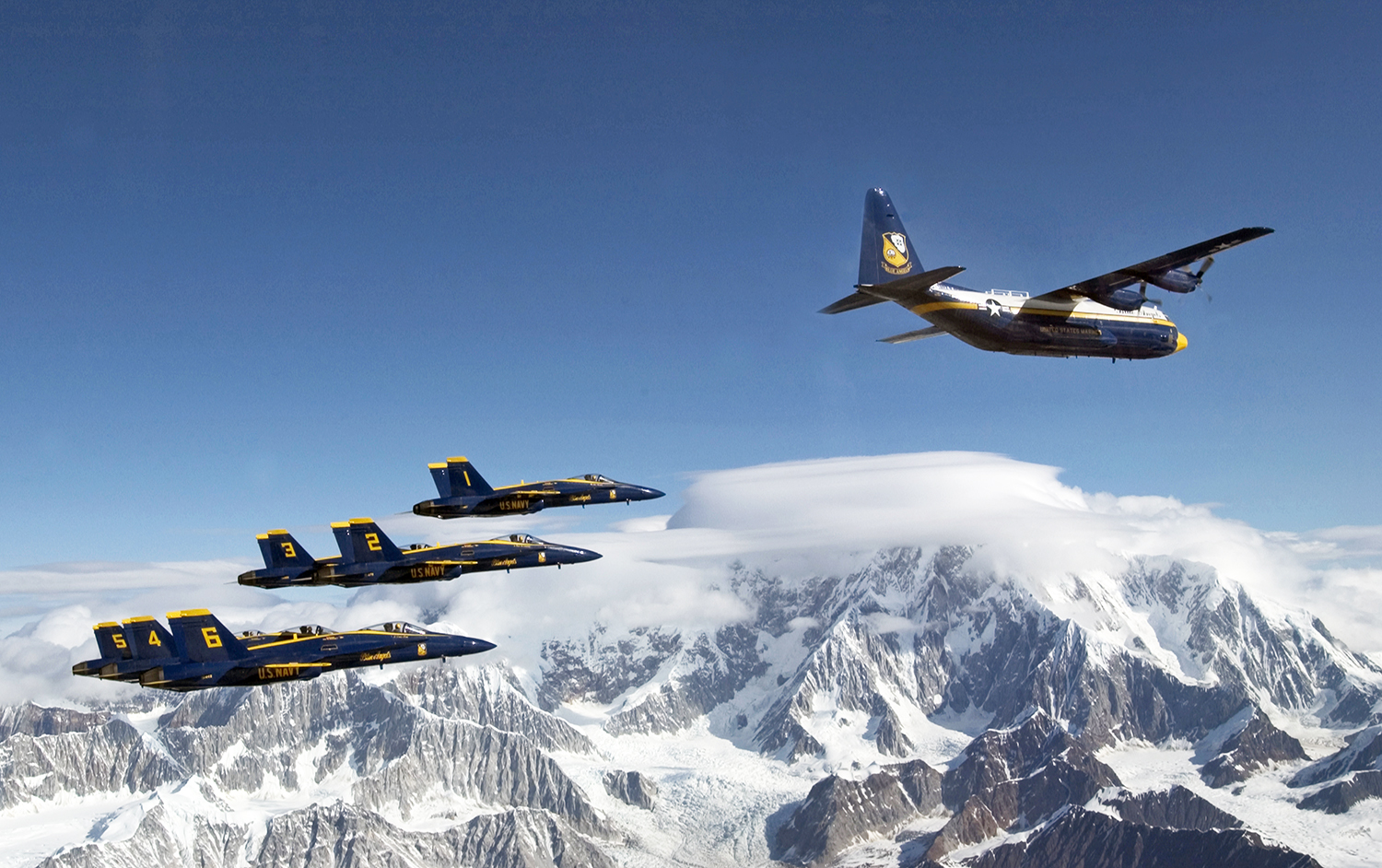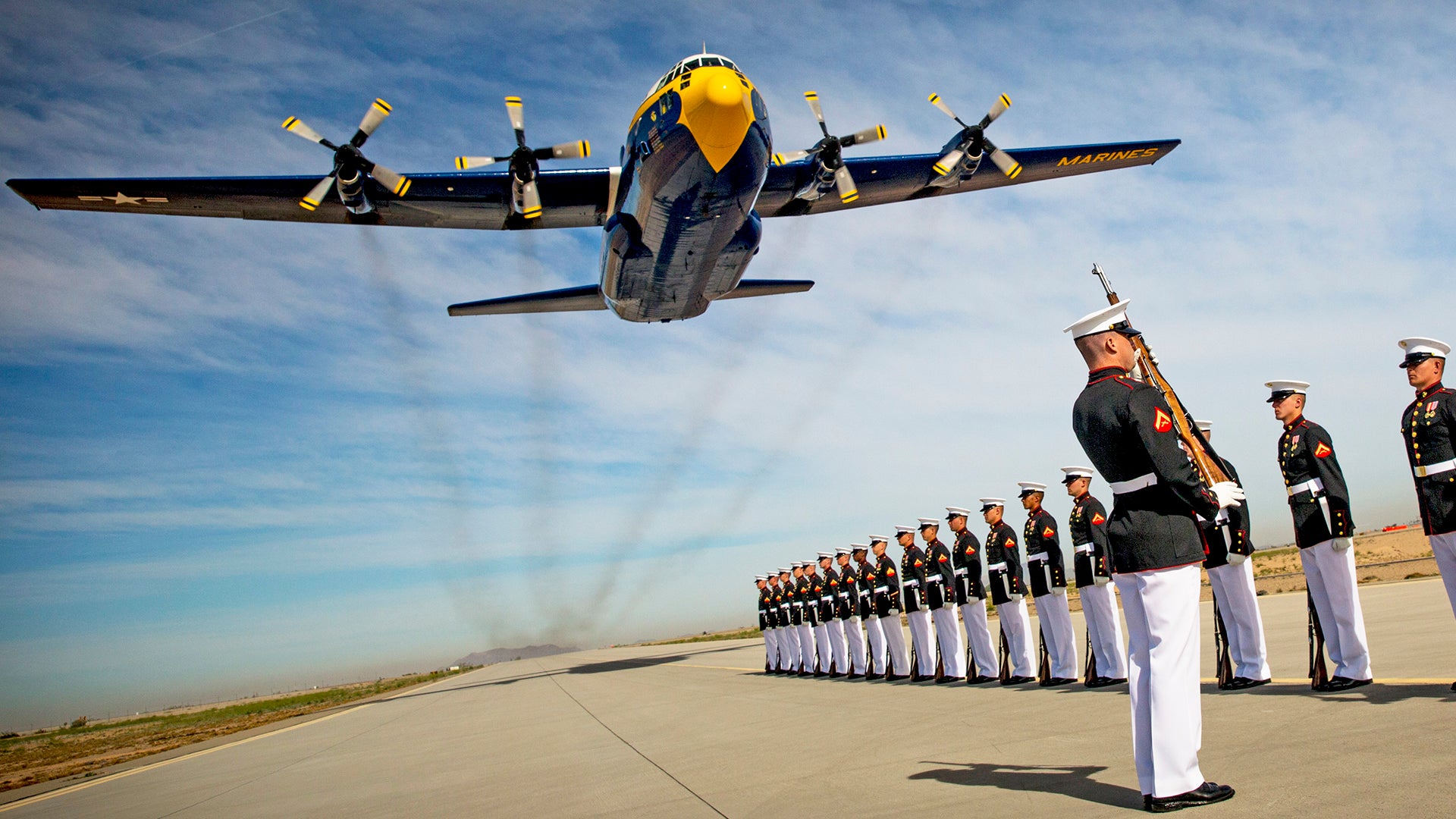The Navy Flight Demonstration Team’s beloved C-130T cargo plane (BuNo 164763), better known by its Fat Albert nickname, has taken to the skies for the last time. The iconic blue, white, and gold Hercules transport was flown from the Blue Angels’ home base at NAS Pensacola in Florida to Joint Reserve Base Fort Worth in Texas where it will spend the rest of its life as a ground training aid.
Since this particular airframe took over the role of Fat Albert in 2002, it has flown over 30,000 hours in support of the Blue Angels mission and performed in front of millions of people at air show locations all over the world. It was also the last Navy or Marine C-130s to execute a jet-assisted takeoff—a highlight of the Blue Angels’ shows up until 2009 when surplus JATO bottle stocks finally ran out.
The Navy, which also manages the Marine Corps’ aircraft fleet, has no replacement for the aircraft at this time. The service was officially set to purchase a single second-hand C-130J from the Royal Air Force to replace Fat Albert, but the deal still hasn’t been finalized.
This means that the team will have to rely on external military transports for all their movements, in addition to chartered aircraft. It will be interesting to see how the team, which has a ridiculously demanding schedule, handles this arrangement. In the past, a fleet C-130T was loaned to the Blue Angels when Fat Albert was receiving deep maintenance. These aircraft, which wore the standard gray paint scheme, were commonly referred to as ‘Ernie.’ But at this time, even this doesn’t sound like it’s going to happen.

The Navy and Marine Corps’ ‘legacy’ C-130s have been the source of major concern in recent years after a horrific crash in Mississippi in 2017. This event prompted the replacement of propellers on the entire fleet, among other upgrades—a program that is still ongoing—thus limiting the capacity of the force to support key logistical duties critical to the Navy and Marine Corps’ operations.
Fat Albert didn’t just move the team and its gear around from location to location, it also served as the high-profile unit’s on-demand airlift service, often shagging urgently needed spare parts and other items on short notice because ‘the show must go on.’ It even carried the bodies of fallen comrades home when disaster struck. Without an aircraft dedicated to the mission, losing such a capability over the long term could have an impact on the team’s readiness and ability to perform throughout the year, not even counting the loss of a major part—and a crowd favorite— of the Blue Angels’ high-energy routine.

Still, the team says Fat Albert will live on, it just isn’t exactly sure when and in what form. They are taking applications for a Fat Albert crew for the 2020-2021 season, but exactly what aircraft will fulfill the role and where it will come from remains a higher-level decision that is still in process at this time. It wouldn’t be too surprising if it gets pushed back further considering it didn’t happen already even as the current Fat Albert’s expiration date was fast approaching.

If everything goes as planned and Fat Albert returns in some form within the next couple of years, it could result in the most anticipated Blue Angels air show season in memory. The team is slated to receive F/A-18E/F Super Hornets around that time and the conversion will also come with a revised routine. You can read all about the Blue Angels’ new mount and the process of transitioning to it in this past article of ours.
With all this in mind, it’s abundantly clear that major changes for the Blues are definitely on the horizon. Let’s just hope Fat Albert will be there to help make those changes a success.
Contact the author: Tyler@thedrive.com
